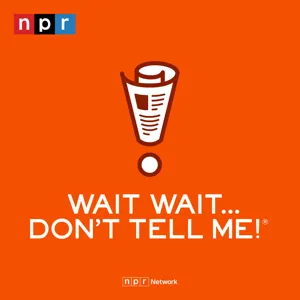Podcast Summary
Staying informed during significant events: BBC's storytelling: Following science and logistics are crucial to controlling the pandemic, with the Pfizer vaccine offering hope but requiring mass immunization
The BBC provides valuable information and inspiration through storytelling, especially during times of significant events like the ongoing coronavirus pandemic and the presidential transition. The importance of following science and the impending distribution of vaccines were major topics discussed, with the understanding that finding an effective vaccine is only the first step, and mass immunization will require intricate logistics. The Pfizer vaccine, reportedly 90% effective, offers hope, but the focus must remain on ensuring a large portion of the population is vaccinated to control the pandemic.
Waiting for FDA authorization before distributing COVID-19 vaccines: Despite promising results, none of the COVID-19 vaccines have been authorized for public use yet. The FDA is evaluating their safety and effectiveness, with Pfizer's vaccine potentially receiving authorization in December. Once authorized, big batches have been produced and distribution plans prioritize healthcare workers and long-term care residents.
While four COVID-19 vaccines are in the final stages of clinical trials in the US, none have been authorized for public use yet. The Food and Drug Administration (FDA) is currently evaluating their safety and effectiveness. Pfizer's vaccine has shown promising results, but the FDA needs more follow-up data before authorization. Operation Warp Speed, the government's vaccine project, expects authorization could come as early as December. If authorized, big batches of the vaccine have already been produced, and states are making plans to distribute it as soon as possible. The distribution plans prioritize healthcare workers and residents of long-term care facilities first. It's important to note that the FDA's authorization and the Centers for Disease Control and Prevention's recommendation are necessary before the vaccine can be distributed.
CDC to issue national vaccine distribution guidelines with ACIP's advice: Healthcare workers to receive the vaccine first due to high risk of exposure and essential role, other essential workers like food industry, transportation, and public safety also being considered, addressing racial disparities in coronavirus outbreak.
The Centers for Disease Control and Prevention (CDC) will issue national guidelines on vaccine distribution, primarily relying on the advice of their Advisory Committee on Immunization Practices (ACIP). This committee has been holding public meetings and has reached a consensus that healthcare workers should receive the vaccine first due to their high risk of exposure and the essential role they play in keeping the healthcare system functioning. Other essential workers, such as those in the food industry, transportation, and public safety, are also being considered as high priority groups due to their large numbers and increased risk. Furthermore, discussions have included addressing racial disparities in the coronavirus outbreak.
COVID-19 Disproportionately Affects Minorities and Vulnerable Populations: Priority should be given to high-risk groups to address disparities during vaccine distribution, predicted for summer 2021, but logistical challenges, like extreme cold storage requirements, could delay it.
The ongoing COVID-19 pandemic has disproportionately affected minority groups and socially vulnerable populations. The National Academies, sponsored by the CDC and National Institutes of Health, recommend prioritizing high-risk groups to address these underlying disparities. If vaccines become available, it's predicted they might be widely distributed by summer 2021, but logistical challenges, such as the need to store some vaccines at extremely low temperatures, could delay distribution. The military is coordinating logistics, but private companies will physically transport and administer the vaccines. The Pfizer vaccine, for instance, requires storage at minus 70 degrees Celsius, posing a significant challenge in the distribution process.
Costs of COVID-19 vaccine distribution: The federal government covers vaccine costs but not distribution expenses, leading to a request for $8.4B from Congress and uncertainty about remaining costs.
The distribution of COVID-19 vaccines is a complex and expensive process. The ultra cold freezers required for storing the vaccines can cost upwards of $10,000 each, and there are additional costs for building online enrollment programs, training providers, hiring vaccinators, and setting up data systems. The federal government is covering the cost of the vaccine and its delivery, but other expenses are not yet funded. A group of state health officials has requested $8.4 billion for vaccine distribution, but Congress has not yet approved this amount. It remains unclear who will cover the remaining costs. The logistical challenges of distributing the vaccine, particularly in rural areas and extreme temperatures, add to the complexity and expense of the process.
Uncertainty surrounding state financial burdens: The distribution of funds for state issues could lead to complex or disastrous outcomes, emphasizing the importance of clear communication and planning.
That the financial burden of certain issues, specifically those related to the states, remains uncertain and could potentially lead to complex or disastrous outcomes. Ping expressed his concerns about the complications surrounding the distribution of funds. The episode was produced by Britt Hanson, fact-checked by Ariela Zabidi, and edited by Vietlay. For more insights, check out Easycater, a company helping businesses with food solutions, or tune in to The Bid, BlackRock's podcast featuring their chairman and CEO, Larry Fink, discussing investment challenges.





